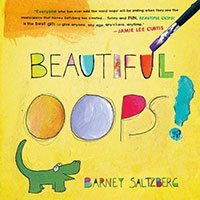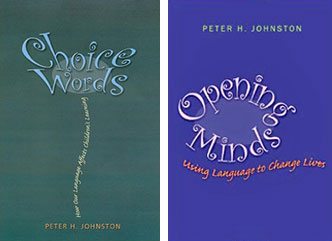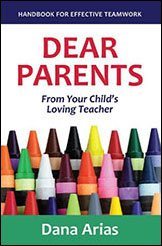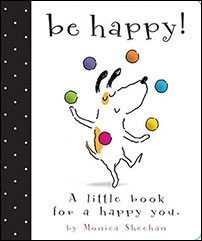 I may never be asked to give the commencement speech at my alma mater — or yours for that matter. However, just in case the opportunity presents itself, I am ready. After considerable reflection on my 25 years as an educator, I can sum up my message for aspiring teachers who are about to embark on a career in the classroom with the following words of wisdom.
I may never be asked to give the commencement speech at my alma mater — or yours for that matter. However, just in case the opportunity presents itself, I am ready. After considerable reflection on my 25 years as an educator, I can sum up my message for aspiring teachers who are about to embark on a career in the classroom with the following words of wisdom.
#1. Practice the “Art of Being”
Being available, being kind, being compassionate, being transparent, being real, being thoughtful, and being ourselves, this is the path that leads to success.
It is so easy to get wrapped up in the “doing” when it comes to teaching. Once you jump on that treadmill with your to-do list in hand, it can be difficult to stop and rest. However, it is the art of being that will lay the foundation for building relationships with students, parents and colleagues. It is those relationships that will play the most important role in your success as an educator.
#2. Develop Stamina and Speed
Be prepared to develop a combination of these two contradictory but essential skills. You will quickly realize that some aspects of teaching require you to go the distance (bathroom breaks will be few and far between). At the very same time you will often need to train like you’re competing for a spot in the Guinness Book of World Records (not everyone can eat an entire lunch and go to the bathroom in 20 minutes or less).
#3. Mistakes Are Okay
 The lovely little book Beautiful Oops! by Barney Saltzberg, offers a profound truth — mistakes are much more than accidents or mishaps. They are opportunities to turn blunders into wonders. Create a classroom climate that embraces trying, failing, and learning from those errors. Set the tone for your students by celebrating those beautiful oops that all of us make so that everyone knows that no one is perfect.
The lovely little book Beautiful Oops! by Barney Saltzberg, offers a profound truth — mistakes are much more than accidents or mishaps. They are opportunities to turn blunders into wonders. Create a classroom climate that embraces trying, failing, and learning from those errors. Set the tone for your students by celebrating those beautiful oops that all of us make so that everyone knows that no one is perfect.
#4. Find a “Marigold”
Several years ago, Jennifer Gonzalez offered this wise advice to those just starting out:
“Just like a young seedling growing in a garden, thriving in your first year depends largely on who you plant yourself next to… Among companion plants, the marigold is one of the best: It protects a wide variety of plants from pests and harmful weeds.”
Seek out someone who will serve as the type of mentor who will support you with positivity. Find a mentor who will not hesitate to show you the ropes, answer questions and offer reassurance — you will never regret spending time with a marigold.
#5. Words Matter, Choose Them Carefully
 Choice Words and Opening Minds by Peter Johnston are two of the best books I’ve ever read about the important role that language plays in our efforts to reach students and positively impact their learning. Both books are full of insightful examples of how what we say (or don’t say) can make a dramatic difference in the lives of students.
Choice Words and Opening Minds by Peter Johnston are two of the best books I’ve ever read about the important role that language plays in our efforts to reach students and positively impact their learning. Both books are full of insightful examples of how what we say (or don’t say) can make a dramatic difference in the lives of students.
#6. Parents Are Our Partners — It Is Not “Us” Versus “Them”
 Too often educators make hasty judgments about what appears to be a lack of interest or involvement on the part of parents. When issues flare with a student, the blame game may surface and the tension mounts. One of the greatest investments any teacher can make is to develop strong communication and rapport with parents. It’s not enough to simply say you value parent input, it is necessary to cultivate a sense of teamwork and mutual respect. Check out Dear Parents: From Your Child’s Loving Teacher (Handbook for Effective Teamwork) by Dana Arias for a wonderful collection of letters that promote a true alliance between educators and parents.
Too often educators make hasty judgments about what appears to be a lack of interest or involvement on the part of parents. When issues flare with a student, the blame game may surface and the tension mounts. One of the greatest investments any teacher can make is to develop strong communication and rapport with parents. It’s not enough to simply say you value parent input, it is necessary to cultivate a sense of teamwork and mutual respect. Check out Dear Parents: From Your Child’s Loving Teacher (Handbook for Effective Teamwork) by Dana Arias for a wonderful collection of letters that promote a true alliance between educators and parents.
#7. Network, Connect, or Get “Linked In”
Social media offers an endless nexus of professional groups. Digital natives will have no trouble seeking out and mingling online with other educators who share the same interests and frustrations yet may offer a different perspective or approach. In addition to the virtual world of networking, don’t hesitate to join organizations that meet face to face, offering high quality and ongoing professional development. State and national chapters of the International Literacy Association (ILA), National Council of Teachers of English (NCTE), National Council of Teachers of Mathematics (NCTM) and the Association of Supervision and Curriculum Development (ASCD), to name a few, are incredibly valuable resources.
#8. Expect to Be Overwhelmed
Rose-colored glasses don’t make an attractive fashion accessory for educators. The reality of this challenging career is that it is and might always be overwhelming. The teacher’s job is tough and it is not for the faint of heart. Despite this fact, the rewards most definitely outweigh the demands (take extra notice of #9 and #10 to counteract #8)!
#9. Be Patient with Yourself
“Patience is not the ability to wait, but the ability to keep a good attitude while waiting.” —Joyce Meyer
You and your craft are a work in progress. It will take time to learn the art and magic of balancing curriculum, technology, classroom management, assessments, and effective teaching strategies. You’ll likely be your own toughest critic. Strive to find the balance between maintaining a sense of urgency and stopping long enough to appreciate the fun and humor that wiggles its way into your classroom thanks to the marvelous little people you will be spending your days with.
#10. Find Joy Every Day
 Be Happy! by Monica Sheehan offers excellent suggestions for staying focused on the simplest of things … make friends, dance, dream big, be brave, along with a treasure trove of other ideas. Read this little gem on the first day of school, the last day of school and lots of days in between. It is a masterpiece and might just be the blueprint for a truly satisfying life for all human beings.
Be Happy! by Monica Sheehan offers excellent suggestions for staying focused on the simplest of things … make friends, dance, dream big, be brave, along with a treasure trove of other ideas. Read this little gem on the first day of school, the last day of school and lots of days in between. It is a masterpiece and might just be the blueprint for a truly satisfying life for all human beings.
